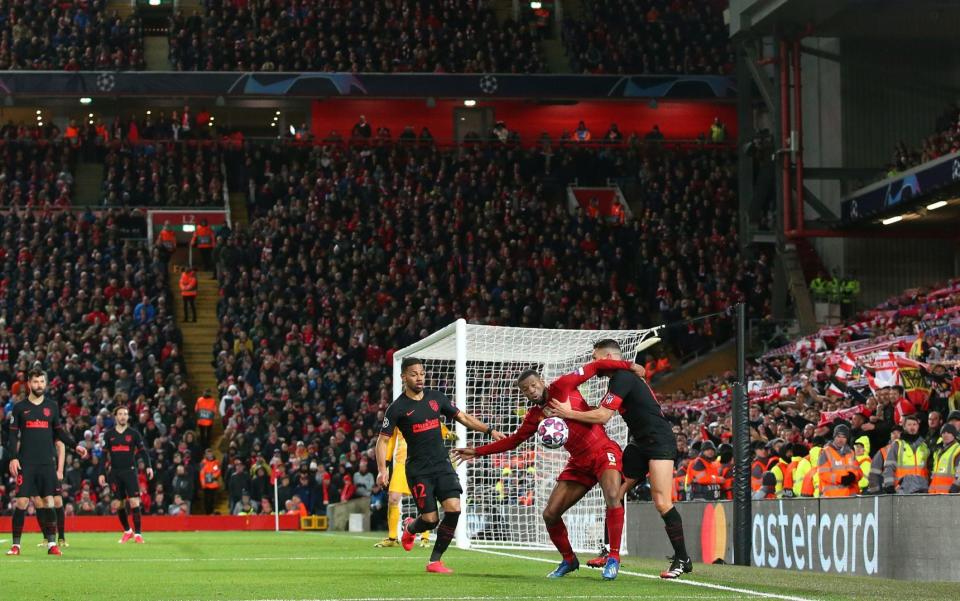Fans will be allowed back in sport stadiums from October, reveals Boris Johnson

Spectators will be allowed into sport events from next week after Prime Minister Boris Johnson announced the latest set of measures to ease the coronavirus lockdown.
Cricket will be the first sport to hold a test event, followed by snooker and racing, with Johnson revealing plans for a "wider reopening" for fans into stadiums from October 1.
However, Premier League clubs are confident that games could be played with supporters present in September - and with around 50 per cent capacity – especially if they are allowed to implement a digital health passport system.
County cricket friendlies on July 26 and 27 will be the first events in the government’s pilot scheme, with Surrey’s two-day match against Middlesex at the Kia Oval one of the games that will permit fans.
Crowds limited to as few as 1,000 - although full details are still being worked out - are likely with priority given to members.
The snooker World Championship beginning on July 31 will have provision for between 250 and 350 "golden ticket" holders and the final day of Glorious Goodwood on Aug 1 will be open to the racecourse's 5,000 members plus guests.
The Football Association will put forward the Community Shield, which it hopes will take place at the end of August, as a test event with pre-season friendlies at Premier League clubs also ear-marked. It is hoped that England’s international matches against Wales, Belgium and Denmark at Wembley Stadium in October will be played in front of spectators.
Pilot events will stress-test the Government’s ‘stage five’ guidance on the return of fans. Measures drawn up by the Department for Digital, Culture, Media and Sport, in consultation with sports governing bodies and Public Health England, include:
Staggered entry times and one-way systems
Screens for when social distancing cannot be used – eg catering or buying merchandise
Temperature checks to enter the venue and isolation rooms for fans showing symptoms of Covid-19
Spectators agreeing to a “new code of behaviour”
Records kept of fans and where they were sitting for 21 days to assist NHS Test and Trace
Additional hygiene facilities, such as hand-washing and sanitiser stations

Attendees will be asked not to use public transport and be offered help with parking, and will be barred from interacting with anyone outside of the group they have entered the stadium with.
It is understood that the DCMS are not likely to insist that spectators wear face masks, because they will be outdoors, and although there have been detailed discussions on the implementation of a digital health passport system – using testing and antibody data – this is regarded at present as too complicated.
Football has been keen to put itself forward as a ‘guinea pig’ for the return of spectators. The Premier League and Championship will not hold a test event in the initial wave because the competitions are coming to a conclusion but football, in particular, is regarded as being at the vanguard of the return of fans with the DCMS impressed by how ‘Project Restart’ has worked.
Premier League clubs believe that face masks may be necessary if they are to quickly reach the capacities they want – as much as 75 per cent – especially when it comes to fans entering and leaving the stadium.
They also believe digital health passports will speed up the timeframe on fans returning and will push for them to be used. Clubs are also likely to hold ballots among season ticket holders.
In a statement the FA said: “We welcome the Government’s positive update today which means we and our football partners can step up our efforts to get fans back into stadiums as soon as possible.
“Supporters are the lifeblood of our national game, and that has been underlined by how much their absence has been felt at matches over the last month."

At his Downing Street briefing, Johnson said: “We will pilot larger gatherings in venues like sports stadiums with a view to a wider reopening in the autumn. From October we intend to bring back audiences in stadiums… in a Covid secure way subject to the successful outcome of pilots."
Stadium capacities will be significantly restricted and Sports Minister Nigel Huddleston warned it will “remain some time” before they can be full again. However the Government’s announcement will provide a vital boost to sport, especially for clubs who are dependent on gate revenue and supporters attending. There is also a recognition of the importance of sport to society.
"For months, millions of us have felt the void of being unable to go to the match to support our team or attend a top-class sporting event," said Huddleston.
"I recognise that not every sport, team or club has the benefit of huge commercial revenue, and it is often their dedicated fans that are the lifeblood which helps keep them going."
An announcement with further details is expected from the Sports Ground Safety Authority which licenses all venues.

 Yahoo Sport
Yahoo Sport 





































